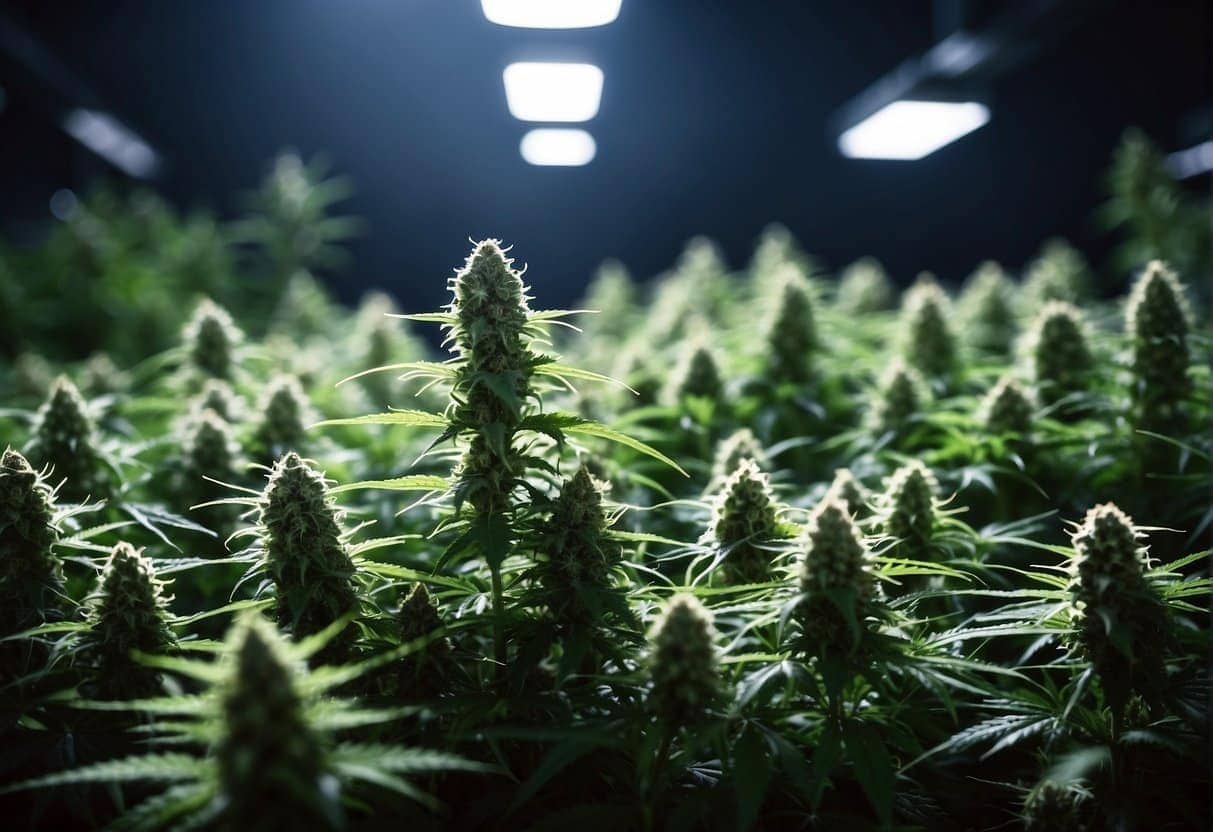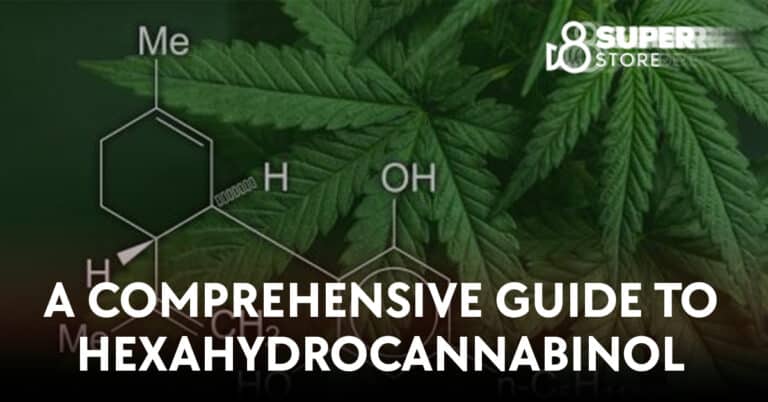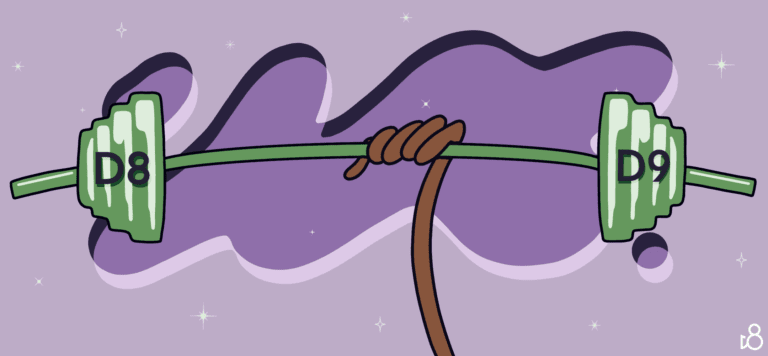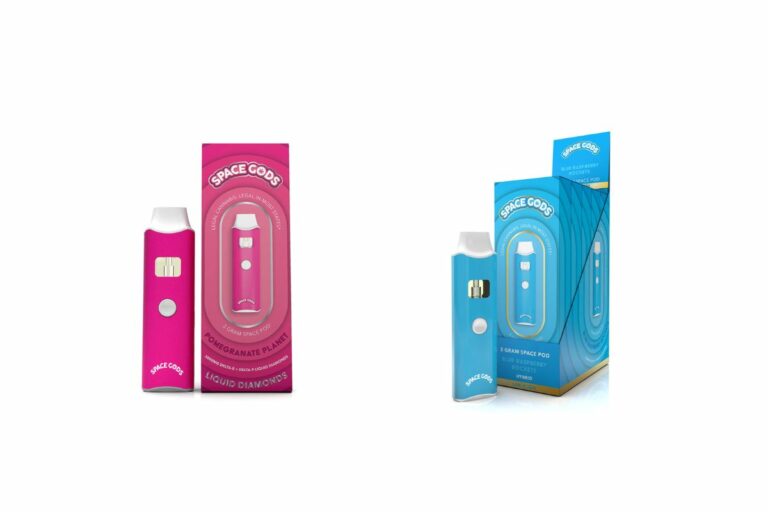Delta 11 vs Delta 8: Comparing Cannabis Compounds
The world of weed just got way more colorful, and it’s not all about chasing clouds with THC anymore. Now, everyone’s talking about the new kids on the block, like delta 8 and delta 11. Time to spotlight delta 8, the chill cousin in the THC family that won’t blast you off to space. This dude is everywhere, totally legal, and comes mainly from our hero plant, hemp. Browsing here, you’ll find delta 8 THC is your pass to relax without skyrocketing. It’s the go-to for anyone looking to stay smooth and steady. If you’re all about that zen, get ready for some cool facts that’ll keep you on the level!
Table of contents
On the other hand, delta 11 is a lesser-known cannabinoid and a structural analog of THC that’s often overlooked in the vast sea of cannabis compounds. When comparing Delta 11 vs Delta 8, there’s less research and availability of Delta 11, but it is still a part of the ever-growing tapestry of cannabis components that contribute to the plant’s medicinal and recreational use. If you’re curious about the differences between these two cannabinoids, understanding their chemical properties, effects, and legal status is crucial in navigating the complex landscape of cannabis-related products.
Understanding Cannabinoids
Before delving into the specific nuances of Delta 11 and Delta 8 THC, it’s crucial to understand their place within the cannabinoid family. Both are chemical compounds with a unique molecular structure that interact with your body’s endocannabinoid system, but they do so in distinctly different ways.
Chemical Structure of Delta 11 and Delta 8
Delta 11 THC and Delta 8 THC are cannabinoids found in the cannabis plant, each with a distinct molecular structure that reflects their unique properties. Delta 11 THC is not as widely researched or discussed as other cannabinoids, so its specific chemical structure is less defined in existing literature. In contrast, Delta 8 THC is similar to Delta 9 THC (the most abundant form of THC in cannabis plants), but with a few subtle yet significant differences in the placement of its chemical bonds. The eighth carbon bond position in Delta 8 THC alters its affinity for cannabinoid receptors and influences its effect on your body.
Endocannabinoid System Interaction
Your endocannabinoid system (ECS) plays a vital role in maintaining body homeostasis and includes CB1 and CB2 receptors. Delta 8 THC is known to have an affinity for the CB1 receptor, which is primarily located in your central nervous system and is responsible for mediating psychoactive effects. Even though the interaction of Delta 11 THC with CB1 receptors is not entirely clear, it’s likely that it similarly engages with this complex system, potentially resulting in different psychoactive effects and benefits. The precise way in which these cannabinoids influence your ECS is at the core of ongoing research, reflecting their potential for diverse therapeutic applications.
Legal Aspects and Regulations

When navigating the landscape of cannabinoid legality, understanding the nuances of federal legislation and its implications on drug testing is essential for you to remain informed and compliant.
2018 Farm Bill Implications
The 2018 Farm Bill is a critical piece of legislation that redefined hemp and its derivatives as separate from marijuana, provided that the concentration of delta-9 THC remains at or below 0.3% on a dry weight basis. This reclassification essentially legalized cannabinoids derived from hemp, which includes delta-8 THC. However, the legal status of delta-11 has yet to be explicitly stated in the bill, leaving some ambiguity regarding its legality. You should be aware that while delta-8 might be federally legal, individual states have the autonomy to regulate or ban its sale and distribution.
Drug Testing and Legal Status
Drug tests commonly employed by employers or law enforcement typically search for metabolites related to delta-9 THC, the primary psychoactive compound in cannabis. While delta-8 and delta-11 are chemically distinct from delta-9 THC, it’s important for you to know that they might still trigger a positive result on a drug test due to similarities in the metabolites. As for the legal status, since drug laws are evolving and vary greatly between jurisdictions, you should stay updated on both federal and state regulations to ensure that you do not inadvertently infringe upon legal boundaries.
Comparative Analysis of Delta 11 and Delta 8
When exploring the cannabis market, you’ll encounter various cannabinoids, each with distinct properties. Understanding the differences between Delta 11 and Delta 8 THC, such as potency and therapeutic potential, is crucial for your informed choices.
Potency and Psychoactive Properties
Delta 8 THC is known for its milder psychoactive effects compared to Delta 9 THC, offering a smoother experience. While Delta 11’s specific psychoactive properties are less documented, it generally falls into the spectrum of THC variants that provide a potent experience. The psychoactive properties often influence your choice between delta 8 gummies and other forms, as these properties dictate the intensity of the experience.
Health Benefits and Therapeutic Potential
Both Delta 8 and Delta 11 offer various health and therapeutic benefits. Delta 8 is recognized for its medical benefits, which range from nausea control to appetite stimulation. Although concrete studies on Delta 11 are sparse, anecdotal evidence suggests that it may share similar therapeutic potentials. These cannabinoids could potentially provide relief for a variety of symptoms, making options like tinctures and topicals viable alternatives to traditional treatments.
Prevalence in the Market and Product Forms
The cannabis market has seen a significant rise in the availability of Delta 8 products. Consumers can find a variety of product forms, including edibles, tinctures, and flower. In comparison, Delta 11 products are less prevalent but are beginning to gain traction. If you’re interested in exploring the range of available forms, delta 8 gummies and flower are among the most accessible options currently dominating the market.
Remember, your personal experience with these compounds can vary, and you should always consider the legality and your health condition when exploring these products.
Experiences and Effects

When exploring Delta-11 and Delta-8 THC, it’s crucial to understand that your experiences will vary depending on numerous factors, such as your own body chemistry and the dosage used. Effects can range from euphoria and relaxation to less desired outcomes such as dry mouth or paranoia.
Common Effects and Side Effects
Effects:
Both Delta-11 and Delta-8 can induce a high, characterized by feelings of euphoria, relaxation, and in some cases, pain relief. Users often report a more mellow intoxication compared to Delta-9 THC, with an overall sense of well-being.
- Euphoria: You might feel a sense of happiness or excitement.
- Relaxation: A calming effect may be prevalent, aiding in anxiety reduction.
- Pain Relief: Some individuals find these compounds effective for managing pain.
Side Effects:
- Dry Mouth: Have some water nearby to stay hydrated.
- Red Eyes: This is a common reaction to cannabinoids.
- Memory Impairments: Especially with higher doses, your short-term memory may be affected.
- Altered Perception: Your senses might be heightened, or you may experience time distortion.
- Adverse Effects: On rare occasions, feelings of anxiety or paranoia can emerge, particularly with higher intake.
User Experiences and Anecdotal Evidence
Positive Reports:
- Users have described the high from Delta-8 as less potent compared to traditional THC, which can lead to a more functioning and clear-headed experience.
- Some anecdotes indicate that Delta-8 provides a less anxious and more relaxing high, making it preferable for those sensitive to the sometimes anxiety-inducing effects of Delta-9 THC.
Concerns and Cautions:
- Not everyone experiences cannabinoids the same way, and some user reports mention paranoia or anxiety, which are possible with any THC product.
- Intoxication Levels: While Delta-8 is said to produce a more mellow high, it is still a psychoactive substance, and you should use it responsibly, especially if you’re unfamiliar with its effects.
It’s worth noting that while Delta-8 THC is often marketed as being “legal” due to the 2018 Farm Bill, legality varies by state and country, and it’s important to stay informed about your local laws. Also, the FDA has not evaluated Delta-8 for safety, and the long-term effects are not well understood. It is essential that you consult with a healthcare professional if you have concerns or questions regarding the use of these compounds.
Scientific Research and Evidence

When comparing delta-11 (11-hydroxy-THC) to delta-8 tetrahydrocannabinol, it’s important to understand that the bulk of scientific research focuses on their pharmacological effects and user experiences, variations in potency and effects are noted.
Clinical Studies and Laboratory Results
Delta-8 THC has been researched for its psychoactive properties and effects on the body. In one clinical research study, delta-8 THC presented a lower psychotropic potency than delta-9 THC. Delta-11, on the other hand, is a metabolite of delta-9 THC and there is evidence to suggest that it might be produced in higher concentrations after oral ingestion, potentially impacting its psychoactive effects.
Laboratory results have analyzed the pharmacokinetics of these cannabinoids, observing that 11-hydroxy-THC is found as a prevalent metabolite following the consumption of cannabis, especially when ingested. This compound is recognized for delivering a more potent and enduring effect, as anecdotal evidence from cannabis users also substantiates these findings.
- Research: Focus on comparing effects of delta-8 and delta-9 THC.
- Evidence: Clinical studies suggest delta-8 could be less potent than delta-9 THC.
- Lab Testing: Reveals 11-hydroxy-THC as a significant metabolite after ingestion.
- Anecdotal Evidence: Users report a stronger effect from 11-hydroxy-THC compared to delta-8.
Your understanding of delta-8 versus 11-hydroxy-THC is bolstered by both controlled research and empirical reports, presenting a diverse picture of these cannabinoids’ impact.
Quality, Purity, and Consumption

When you’re investigating the distinctions between Delta 11 THC and Delta 8 THC, it’s essential to scrutinize the quality and purity of the products you consider. These factors immensely influence consumption preferences and the overall experience.
Assessment of Delta 11 and Delta 8 Products
Quality: You should seek high-quality Delta 11 and Delta 8 distillates, ensuring that the products have been rigorously tested for contaminants and consistency in cannabinoid content. Purity is a measure of how free these products are from impurities like pesticides, heavy metals, and residual solvents. High-purity delta THC products provide you with a more reliable and potentially safer consumption experience.
- Lab Testing: Reliable vendors should offer third-party lab test results, which include:
- Cannabinoid profile
- Presence of contaminants
- Concentration levels
Delta 11 THC and Delta 8 THC can vary in their chemical stability and potency, affecting the shelf-life and experience. Always look for a Certificate of Analysis (CoA) that confirms you’re getting a product that meets safety standards.
Factors Influencing Consumption Preferences
Your personal consumption preferences for Delta 11 or Delta 8 products might vary based on several factors:
- Desired Effects: Delta 8 THC is known for a milder high and less intense psychoactive effects, while Delta 11 might offer a different or more potent experience.
- Tolerance and Sensitivity: Delta 8 could be better suited if you have a lower tolerance or prefer fewer side effects. Delta 11 might suit those seeking stronger effects.
- Legal Status: Ensure that the THC variants you choose are legal in your jurisdiction.
Each person’s experience with delta THC products differs, and your preferences could be influenced by the potency, onset time, and duration of effects, which tie back to product quality and purity. Remember to consume these products responsibly and consider starting with lower doses, especially if you are inexperienced with their effects.
The Hemp Industry and Future Potential

In the evolving landscape of cannabis regulation, you’ll find the hemp industry at the forefront of innovation and growth. With increasing discoveries in hemp-derived cannabinoids, there’s a significant potential for development, particularly in the understanding and application of the entourage effect which could revolutionize product formulations.
Hemp-Derived Cannabinoids and the Entourage Effect
When exploring hemp-derived cannabinoids, it is essential to understand their diverse profiles and how they interact. These profiles are not just limited to the more commonly known cannabidiol (CBD) but include a variety of other cannabinoids such as delta-8 THC and the less familiar delta-11 THC. Each compound is unique in its structure and effect, contributing to what’s known as the entourage effect—the synergistic interaction of cannabis compounds that can potentially enhance the overall therapeutic benefits.
This entourage effect is crucial in considering the future potential of the hemp plant. The myriad of cannabinoids, each with its properties, suggests that the whole hemp plant extract may be more beneficial than isolated compounds. For example, while delta-8 THC is noted for its lower psychotropic potency compared to its more famous relative, delta-9 THC, it has been suggested that it could have considerable therapeutic benefits, particularly when combined with other cannabinoids and terpenes from the hemp plant.
Your understanding of the cannabis plant’s chemistry is vital in grasping the hemp industry’s direction. As regulatory landscapes shift, the industry seeks to unlock the full potential of these compounds, particularly in states where legislation has clarified the legality of hemp-derived products. This has provided a pathway for the hemp industry to innovate responsibly and market products that harness the full potential of hemp-derived cannabinoids.
By keeping abreast of scientific advances and regulatory changes, you can anticipate new and exciting developments in the hemp industry that are likely to emerge in the near future. This burgeoning field holds promise for novel applications of hemp-derived cannabinoids, both in therapeutic contexts and in the broader wellness market.
Frequently Asked Questions
In this section, you’ll find precise answers to common queries about the differences and effects of Delta 8 and Delta 11 cannabinoids.
What are the main differences in effects between Delta 8 and Delta 11?
Delta 8 THC is known for producing a milder high with less anxiety and paranoia compared to Delta 9 THC. Information on the effects of Delta 11 is less common, but it is suggested that it may offer a unique set of effects due to its different chemical structure.
How does Delta 11 compare to Delta 9 in terms of psychoactive strength?
Delta 11 is another form of THC with psychoactive properties. While the exact potency of Delta 11 is not as well-documented as Delta 9, it is generally considered to be less potent than Delta 9 THC, which is known for its strong psychoactive effects.
Can Delta 11 cause a positive result on a drug test?
Yes, Delta 11 can potentially cause a positive result on a drug test, as many standard tests are designed to detect the metabolites of THC, regardless of the specific form.
Which cannabinoid is considered the strongest among Delta 8, Delta 9, and Delta 11?
Delta 9 THC is traditionally considered the strongest among these cannabinoids due to its pronounced psychoactive effects and widespread availability.
Are there distinct benefits of using Delta 11 over Delta 8 for managing pain?
While both Delta 11 and Delta 8 may have potential benefits for managing pain, there are currently more reports and user experiences supporting the effectiveness of Delta 8 in this regard. However, individual responses can vary.
Is Delta 11 known to produce a higher level of intoxication than other cannabinoids?
So far, there’s limited information on Delta 11’s level of intoxication compared to other cannabinoids. However, anecdotal reports suggest that its effects may be more comparable to Delta 8 than the more intoxicating Delta 9 THC.







